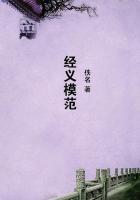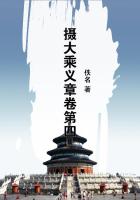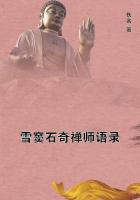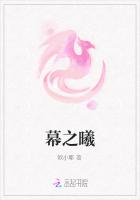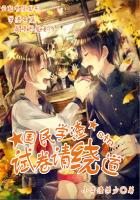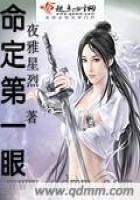"Valerius struck at Titus, And lopped off half his crest;But Titus stabbed Valerius A span deep in the breast," -I find, on the margin of my old copy, in a schoolboy's hand, the words "Well done, the Jacobites!" Perhaps my politics have never gone much beyond this sentiment. But this is a digression from Homer. The very sound of the hexameter, that long, inimitable roll of the most various music, was enough to win the heart, even if the words were not understood. But the words proved unexpectedly easy to understand, full as they are of all nobility, all tenderness, all courage, courtesy, and romance. The "Morte d'Arthur" itself, which about this time fell into our hands, was not so dear as the "Odyssey," though for a boy to read Sir Thomas Malory is to ride at adventure in enchanted forests, to enter haunted chapels where a light shines from the Graal, to find by lonely mountain meres the magic boat of Sir Galahad.
After once being initiated into the mysteries of Greece by Homer, the work at Greek was no longer tedious. Herodotus was a charming and humorous story-teller, and, as for Thucydides, his account of the Sicilian Expedition and its ending was one of the very rare things in literature which almost, if not quite, brought tears into one's eyes. Few passages, indeed, have done that, and they are curiously discrepant. The first book that ever made me cry, of which feat I was horribly ashamed, was "Uncle Tom's Cabin," with the death of Eva, Topsy's friend. Then it was trying when Colonel Newcome said Adsum, and the end of Socrates in the Phaedo moved one more than seemed becoming--these, and a passage in the history of Skalagrim Lamb's Tail, and, as I said, the ruin of the Athenians in the Syracusan Bay. I have read these chapters in an old French version derived through the Italian from a Latin translation of Thucydides. Even in this far-descended form, the tale keeps its pathos; the calm, grave stamp of that tragic telling cannot be worn away by much handling, by long time, by the many changes of human speech. "Others too," says Nicias, in that fatal speech, when -"All was done that men may do, And all was done in vain," -"having achieved what men may, have borne what men must." This is the very burden of life, and the last word of tragedy. For now all is vain: courage, wisdom, piety, the bravery of Lamachus, the goodness of Nicias, the brilliance of Alcibiades, all are expended, all wasted, nothing of that brave venture abides, except torture, defeat, and death. No play not poem of individual fortunes is so moving as this ruin of a people; no modern story can stir us, with all its eloquence, like the brief gravity of this ancient history.
Nor can we find, at the last, any wisdom more wise than that which bids us do what men may, and bear what men must. Such are the lessons of the Greek, of the people who tried all things, in the morning of the world, and who still speak to us of what they tried in words which are the sum of human gaiety and gloom, of grief and triumph, hope and despair. The world, since their day, has but followed in the same round, which only seems new: has only made the same experiments, and failed with the same failure, but less gallantly and less gloriously.
One's school-boy adventures among books ended not long after winning the friendship of Homer and Thucydides, of Lucretius and Catullus. One's application was far too desultory to make a serious and accurate scholar.
I confess to having learned the classical languages, as it were by accident, for the sake of what is in them, and with a provokingly imperfect accuracy. Cricket and trout occupied far too much of my mind and my time: Christopher North, and Walton, and Thomas Tod Stoddart, and "The Moor and the Loch," were my holiday reading, and I do not regret it. Philologists and Ireland scholars are not made so, but you can, in no way, fashion a scholar out of a casual and inaccurate intelligence. The true scholar is one whom I envy, almost as much as I respect him; but there is a kind of mental short-sightedness, where accents and verbal niceties are concerned, which cannot be sharpened into true scholarship. Yet, even for those afflicted in this way, and with the malady of being "idle, careless little boys," the ancient classics have a value for which there is no substitute. There is a charm in finding ourselves--our common humanity, our puzzles, our cares, our joys, in the writings of men severed from us by race, religion, speech, and half the gulf of historical time--which no other literary pleasure can equal.
Then there is to be added, as the university preacher observed, "the pleasure of despising our fellow-creatures who do not know Greek." Doubtless in that there is great consolation.
It would be interesting, were it possible, to know what proportion of people really care for poetry, and how the love of poetry came to them, and grew in them, and where and when it stopped. Modern poets whom one meets are apt to say that poetry is not read at all.
Byron's Murray ceased to publish poetry in 1830, just when Tennyson and Browning were striking their preludes. Probably Mr. Murray was wise in his generation. But it is also likely that many persons, even now, are attached to poetry, though they certainly do not buy contemporary verse. How did the passion come to them? How long did it stay? When did the Muse say good-bye? To myself, as I have remarked, poetry came with Sir Walter Scott, for one read Shakespeare as a child, rather in a kind of dream of fairyland and enchanted isles, than with any distinct consciousness that one was occupied with poetry. Next to Scott, with me, came Longfellow, who pleased one as more reflective and tenderly sentimental, while the reflections were not so deep as to be puzzling. I remember how "Hiawatha" came out, when one was a boy, and how delightful was the free forest life, and Minnehaha, and Paupukkeewis, and Nokomis.


